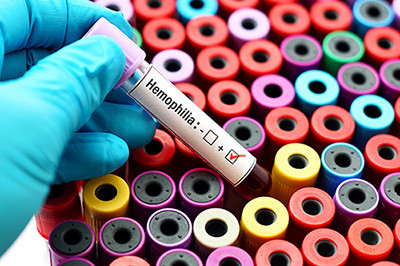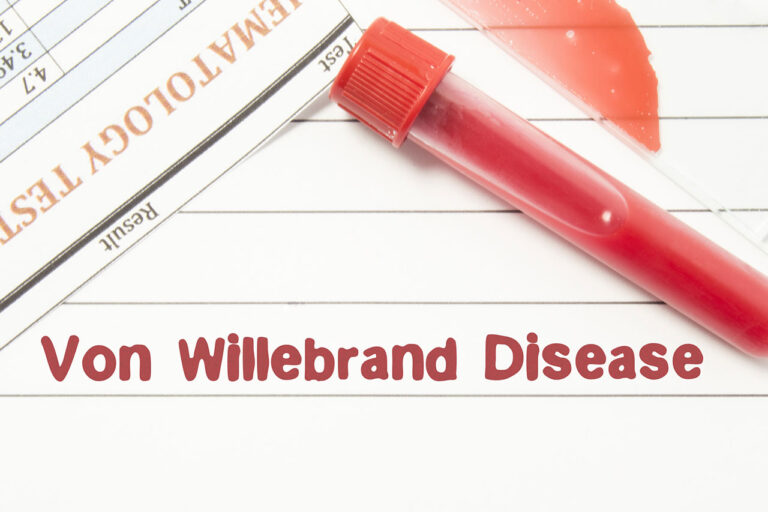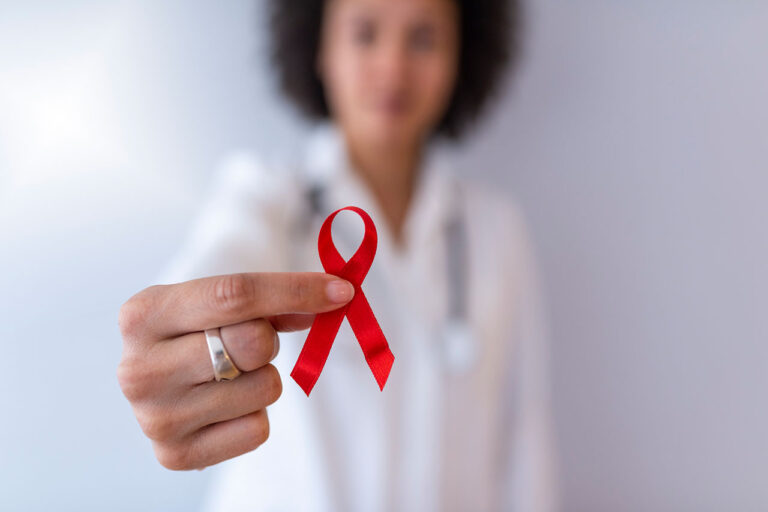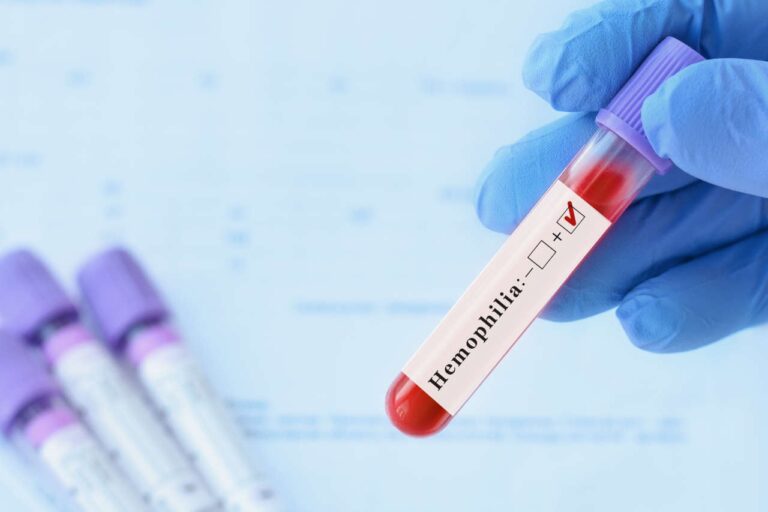
Clotting is necessary to stop bleeding and is essential in healing wounds. However, those with hemophilia are not able to produce the necessary levels of certain clotting factors, and therefore, experience health consequences.
Hemophilia is a rare genetic disorder where a person’s blood has difficulty clotting, resulting in pain and severe health issues.
Can IVIG help?
Free IVIG Treatment Info | Difficulty In Diagnosing?Types of Hemophilia
According to the Center for Disease Control, the two most common forms of this disease are:
- Hemophilia A (classic hemophilia) where a person has insufficient levels of clotting factor VIII (8)
- Hemophilia B (Christmas disease) caused by low levels of clotting factor IX (9).
The latter is less common, but both conditions have the same symptoms.
What Are the Symptoms?
Symptoms of hemophilia depend largely on how low the clotting factor levels are: mild, moderate, or severe.
Mild Hemophilia
People with mild hemophilia may not bleed more often than usual in daily life, but they can experience longer-than-normal bleeding after surgery, dental work, injuries, or deep cuts. Bruising may also occur more easily than in people without hemophilia.
Moderate Hemophilia
People with moderate hemophilia may experience bleeding after minor injuries, surgery, or dental procedures and may sometimes have spontaneous bleeding episodes, especially into joints and muscles. These bleeds may not be as frequent as in severe hemophilia but still require prompt treatment.
Severe Hemophilia
Someone with severe hemophilia is more likely to experience spontaneous internal bleeding, especially into the joints and muscles. These bleeds can cause swelling, warmth, bruising, and severe pain, and over time can lead to chronic joint damage if not treated quickly. People with hemophilia may also experience frequent nosebleeds, prolonged bleeding from cuts, and sometimes blood in the urine or stool.
Who’s at Risk and How To Get Tested
Hemophilia is usually caused by a change (mutation) in a gene that provides instructions for making clotting factor. It is typically inherited and present at birth. Because the gene is located on the X chromosome, hemophilia is more common in males. Women who carry the gene may be “carriers,” but many carriers also have low clotting factor levels and can experience symptoms similar to mild hemophilia, such as heavy menstrual bleeding or easy bruising.
If you have a family history of hemophilia, including women known to be carriers, it is important to talk with your doctor about testing. Hemophilia is diagnosed through blood tests that measure clotting factor levels and overall clotting function. In some cases, genetic testing may be recommended to confirm the diagnosis or identify carriers in the family.
Hemophilia Treatment Options
After being diagnosed with hemophilia, it is important to begin appropriate treatment as soon as possible.
Get IVIG Copay Assistance
Your IVIG Treatment Info | Get IVIG Prior Authorization- On-demand treatment: People with mild hemophilia may only need treatment when bleeding occurs. This usually involves infusing the missing clotting factor to stop active bleeding and prevent complications.
- Prophylactic (preventive) treatment: People with moderate to severe hemophilia often receive regular prophylactic treatment, which involves infusing clotting factor on a schedule (such as several times per week) to keep levels high enough to reduce or prevent spontaneous bleeds. This approach helps protect joints and improves long-term quality of life.
Pain Management
Pain medicine may be needed to relieve discomfort from joint or muscle bleeds. However, some medications—such as aspirin and many nonsteroidal anti-inflammatory drugs (NSAIDs)—can affect platelet function and increase bleeding risk. Patients should only use pain relievers that are considered safe for people with bleeding disorders and should always consult their doctor or hemophilia treatment center before taking any new medication.
Inhibitors: When the Body Rejects Treatment
About 15%–20% of people with hemophilia A, and a smaller percentage with hemophilia B, develop inhibitors—antibodies that the immune system forms against infused clotting factor. These inhibitors prevent the treatment from working effectively because the body “rejects” the supplemental factor. When inhibitors develop, patients often need alternative or specialized treatments, which can be more complex and costly. Close monitoring by a hematologist or hemophilia treatment center is essential to manage inhibitors and adjust therapy.
Conclusion
In recent years, treatment for hemophilia has become much more effective, allowing many people with the condition to live healthy, active, and productive lives. The key is to seek treatment early, follow a personalized care plan, and work closely with specialists to manage symptoms and prevent complications. Ask your doctor about working with AmeriPharma® Specialty Care to help manage hemophilia. Our dedicated pharmacists are available 24/7/365 to answer your questions, coordinate your medication, and support you throughout your treatment journey.














